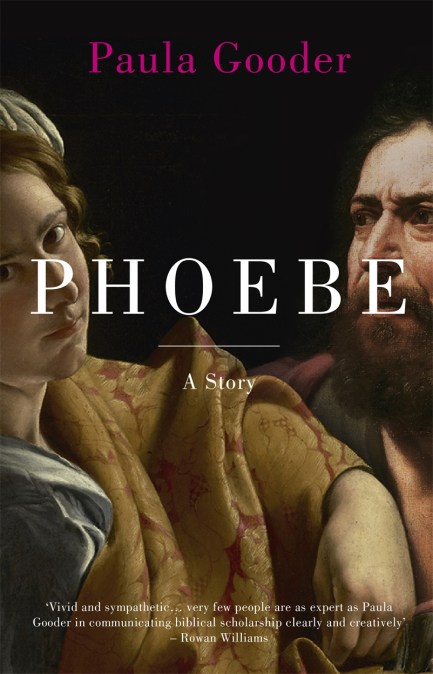Sometime around 56 AD, the apostle Paul wrote to the church in Rome. His letter was arguably his theological masterpiece, and has continued to shape Christian faith ever since. He entrusted this letter to Phoebe, the deacon of the church at Cenchreae; in writing to the church that almost surely met in her home, Paul refers to her both as a deacon and as a helper or patron of many. But who was this remarkable woman?
In this, her first work of fiction, Biblical scholar and popular author and speaker Paula Gooder tells Phoebe’s story – who she was, the life she lived and her first-century faith – and in doing so opens up Paul’s theology, giving a sense of the cultural and historical pressures that shaped Paul’s thinking, and the faith of the early church.
Written in the gripping style of Gerd Theissen’s The Shadow of the Galilean, and similarly rigorously researched, this is a book for everyone and anyone who wants to engage more deeply and imaginatively with Paul’s theology – from one of the UK’s foremost New Testament scholars.
In this, her first work of fiction, Biblical scholar and popular author and speaker Paula Gooder tells Phoebe’s story – who she was, the life she lived and her first-century faith – and in doing so opens up Paul’s theology, giving a sense of the cultural and historical pressures that shaped Paul’s thinking, and the faith of the early church.
Written in the gripping style of Gerd Theissen’s The Shadow of the Galilean, and similarly rigorously researched, this is a book for everyone and anyone who wants to engage more deeply and imaginatively with Paul’s theology – from one of the UK’s foremost New Testament scholars.
Newsletter Signup
By clicking ‘Sign Up,’ I acknowledge that I have read and agree to Hachette Book Group’s Privacy Policy and Terms of Use
Reviews
This book is a really vivid and sympathetic picture of the world of the first Christians, opened up through the personality of Paul's colleague and friend, Phoebe. Very few people are as expert as Paula Gooder in communicating biblical scholarship clearly and creatively, and this first venture into historical story-telling will bring the biblical text freshly alive for a wide and enthusiastic readership.
Enter Dr Paula Gooder, with her fine scholarship, brilliant research and articulate imagination... If I had one word to describe Phoebe, it would be 'charm'.
Gooder's application of Christian theology to her story of Phoebe is masterful
Phoebe does not disappoint: it is a very enjoyable and interesting story.
'An engrossing story... Gooder's profound scholarship is lightly and effectively incorporated... Electrifying... a very effective and thought-provoking dramatization... Highly recommended'.
This is a clever book which delights on two levels . . . if the story is good, the commentary is better, and one suspects this is Gooder's prime purpose . . . I strongly recommend this book, which will both entertain and inform.
scholarship ... underpins every element of the story.
'In Phoebe, the New Testament scholar Paula Gooder sets out to imagine the biography that history alone cannot reconstruct. She makes use of her considerable expertise to endow Phoebe with a dramatic but believable past, and populates the nascent church in Rome with characters who are credible... A vivid and accessible introduction to the context in which Paul and Phoebe operated... For anyone who wants to understand more about the small and distinctive world of early Christianity, Phoebe is to be recommended.'

